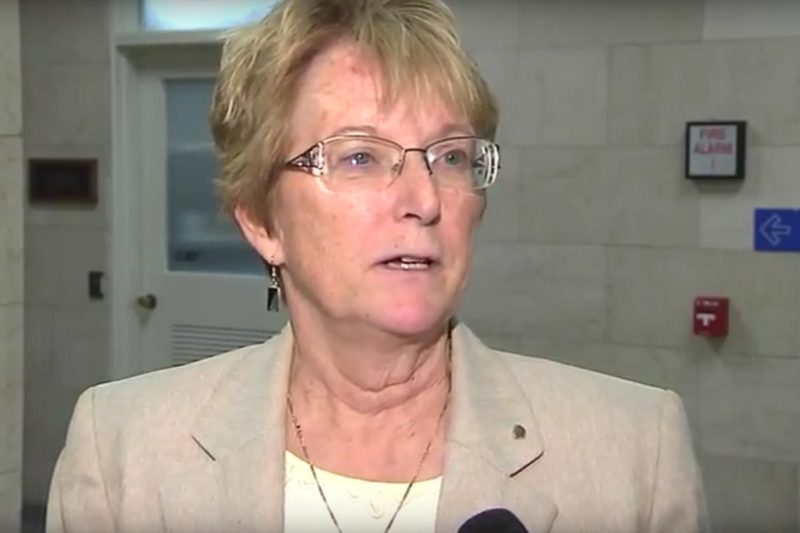Pennsylvania Republicans Fast-Track Anti-Choice Bill as Governor Vows Veto
Rep. Jason Dawkins (D-Philadelphia) said during the committee hearing that lawmakers had no place inserting themselves in a conversation between a pregnant person and a doctor. "If we put certain restrictions on a woman's choice, will they start looking for that other option?" Dawkins said.

Republicans in Pennsylvania are hurrying through the legislature a bill that would severely restrict abortion care, passing the bill through committee Monday without a public hearing—three days after its introduction.
HB 1948, sponsored by Rep. Kathy Rapp (R-Warren), would criminalize a common procedure used for second-trimester abortion care and ban abortion after 20 weeks’ gestation. Pennsylvania law today bans abortion care after 24 weeks’ gestation. Rapp, co-chair of the Pennsylvania House Pro-Life Caucus, was the primary sponsor of a failed 2012 bill that would have required those seeking an abortion to undergo a forced transvaginal ultrasound.
Jeff Sheridan, press secretary for Gov. Tom Wolf (D), said in a statement Monday that the governor would veto the anti-choice measure should it reach his desk.
Republicans hold dominant majorities in the state house and senate.
The bill bans so-called dismemberment abortion, targeting the dilation and evacuation (D and E) procedure that is commonly used after miscarriages and in second-trimester abortion care. The procedure is a method of abortion during which a physician will dilate a woman’s cervix and remove the fetus using forceps, clamps, or other instruments.
There were 32,126 abortions performed in Pennsylvania in 2014, and 2,377 of those (7.4 percent) were performed after the first 14 weeks of pregnancy, according to the state health department’s annual report.
A physician who performs the procedure would be guilty of a third-degree felony, which carries a penalty of up to seven years in prison and up to $15,000 in fines.
Susan Frietsche, senior staff attorney at the Women’s Law Project, told Rewire that anti-choice lawmakers are not using medical language, but rather political language, in their attempt to regulate the practice of medicine.
“One of the real difficulties of imprecise or vague statutes is that people who are trying to conform their conduct to be lawful don’t know what they’re supposed to do,” Frietsche said. “When you’re messing in [a] very technical and complex field of medicine and you’re a layperson, and you’re a legislature who is not a doctor, this can be a real hazardous undertaking.”
The bill includes an exception when the D and E procedure is necessary to prevent “either the death of the pregnant woman or the substantial and irreversible impairment of a major bodily function of the woman.” There is no exception for rape, incest, or fetal anomaly.
Frietsche said that the exceptions in the bill are “labyrinthian and very burdensome” for physicians who provide abortion care.
The bill also carries an exception for abortion procedures that take place in a hospital. There were abortions performed at 18 hospitals and 19 non-hospital facilities during 2014, according to the state’s report.
The anti-choice Republican bill also bans the termination of a pregnancy in which the gestational age of the fetus is “at 20 or more weeks.”
The bill is set against the backdrop of a primary election, as state lawmakers campaign ahead of the April 26 vote.
Rep. Jason Dawkins (D-Philadelphia) said during the committee hearing that lawmakers had no place inserting themselves in a conversation between a pregnant person and a doctor. “If we put certain restrictions on a woman’s choice, will they start looking for that other option?” Dawkins said, reported the Associated Press.
The House Health Committee passed the measure with a vote of 16 to 10. The legislation now moves to the full state house for further action.
